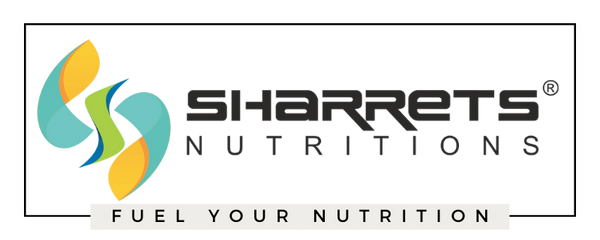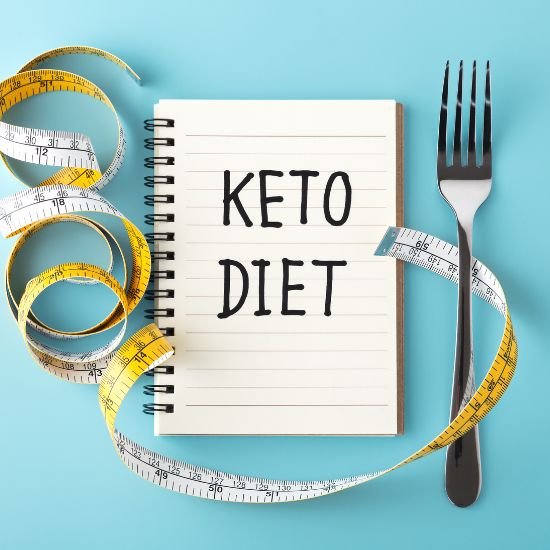
How to take care of your Heart health ?
Share
Heart health (cardiovascular health)
Cardiac problems can have extremely serious consequences, but in many cases adopting a healthy lifestyle with healthy diet may reduce your risk.
Symptoms of Heart Problems
It is not uncommon for the first sign of a heart problem to be a major event, such as a heart attack or stroke. However there are often clues that issues are developing in the cardiovascular system. For example, cholesterol or blood pressure may be elevated. Consequently, your healthcare professional checks these and other measures of your heart health whenever you have a check-up.
Other indications of heart problems may include: Pain in the chest that feels tight, squeezing or constricting may indicate a heart attack, regardless of whether it comes on suddenly or slowly. The pain may also be experienced in other parts of the body, including the jaw, arms, back and neck, and may be accompanied by nausea, dizziness and difficulty breathing. Call for an ambulance, even if you’re not sure that a heart attack has occurred. Rapid medical intervention is essential. An irregular, rapid or fluttery heartbeat Oedema (fluid retention) of the abdomen and lower limbs Becoming breathless easily, even when you’re not performing strenuous activities. You may also feel wheezy or cough frequently. Weakness and dizziness Nausea Increased sweating Symptoms of dizziness, vertigo, tinnitus, headache (especially first thing in the morning), nosebleed, nausea or erectile dysfunction may indicate high blood pressure.
Over the longer period , high cholesterol levels could cause deposits of cholesterol to form in the or eyelids (xanthelasma) or tendons (xanthoma) , and/or discolouration of the outer edge of the cornea (arcus senilis).
Causes of Heart Problems.
Coronary artery disease (CAD) is the most common form of heart disease, and is caused by narrowing of the arteries, which increases the risk of a heart attack or stroke occurring.
High levels of LDL-cholesterol (‘bad’ cholesterol) are a key factor in the development of CAD because they can lead to the accumulation of fatty deposits in artery walls (atherosclerosis), making the arteries narrower and stiffer. Low levels of HDL-cholesterol (‘good’ cholesterol) may also be involved.
Cholesterol levels in the blood depend on dietary factors (e.g. the amount of saturated fat and cholesterol consumed) and the amount of cholesterol manufactured by the body (which may involve genetic factors).
Other factors that may contribute to the development of Coronary artery disease (CAD) include:
- High blood pressure (which may be a consequence of medical problems, but is more often due to lifestyle issues, including being obese, being physically inactive, and eating a high salt diet).
- High triglyceride levels ,
- High levels of a compound called homocysteine
- Smoking
- Being overweight
- Aging - Getting older
- Being diabetic
- Having a personal or family history of Cardiac problems .
- Leading an inactive lifestyle.
Congestive heart failure, a condition in which the heart weakens and becomes unable to effectively perform its functions, is a serious consequence of CAD (coronary artery disease) .As heart function declines, fluid accumulates in the abdomen, legs, and lungs, causing the characteristic symptoms of fatigue, oedema and breathlessness.
Natural therapies
Amazing results from respected university studies prove these natural ingredients are nature's gift to the promotion of wellness.
Experts researched the health restoring properties of Mixture of ginger . garlic , lemon , lemon, apple cider vinegar & honey are remedial to both common and less common disorders.
Apple cider vinegar is a helpful supplement that has shown promise in helping diabetes, cancer, cardiac health, high cholesterol, and weight loss. For years, people have used apple cider vinegar as a folk remedy to lower fever and indigestion aid.
Honey: It is a very effective in the treatment of some pathological conditions of the intestinal tract, lungs, heart, and nervous system. In recent period of time, medical science has discovered that honey is an important medicine possessing many therapeutic properties.
Garlic: It is a widely recognized health enhancing supplement. It promotes the well-being of the heart and immune systems with antioxidant properties and help maintain healthy blood circulation. To improve the body's immune cell activity , is one of the potent health benefits of GARLIC.
Lemon: It is Known for centuries for its strong antiviral , antibacterial, and immune-boosting properties. It is also used as a weight loss aid as its juice is a liver cleanser and digestive booster aiding detoxification.
Ginger: For over 500 years, It has been used both as a medicine as well as food . Today, it is used for ailments such as a simple cold, migraine, inflamed blood vessels, headaches, arthritis and as cough suppressants.
Antioxidants are often taken with folic acid and the vitamins B6 and B12. Low intake of these B vitamins is a common cause of elevated plasma homocysteine.
Olive leaf extract is traditionally used to maintain healthy blood pressure and a healthy cardiovascular system. Maintaining adequate magnesium levels helps regulate the contraction of the heart muscle and maintain healthy cardiovascular function.
Magnesium may also be beneficial in times of stress. It is often taken in a powdered form with the amino acid taurine, which also plays a role in maintaining cardiovascular health.
Resveratrol protects cardiovascular health- Because of its anti-inflammatory activity, resveratrol has been shown to offer protection against atherosclerosis (thickening of the arteries that cuts off blood flow), high LDL “bad cholesterol,” formation of blood clots and myocardial infarction.
Consuming more Resveratrol has also been shown to help improve circulation and have beneficial effects on glucose and lipid metabolism in some with higher risk for metabolic syndrome .
One significant source of resveratrol, Itadori tea -has long been used in Asian countries, including Japan and China, as a traditional herbal remedy for preventing strokes & cardiac diseases.
Diet and lifestyle
- A healthy diet and lifestyle are essential to a healthy heart. Consult with your physician to develop a plan to achieve and maintain a healthy cardiovascular system, blood sugar balance and body weight, , as all of these contribute to your Cardiac health.
- When assessing your Cardiac health, your Physician will consider your blood pressure and cholesterol level in the context of other risk factors such as your family history, body weight, level of physical activity and whether you are diabetic or smoke cigarettes.
- Adhere to your doctor’s instructions. Consult with your doctor before taking any dietary supplements or changing your diet or lifestyle; such changes may mean that your medicine or its dosage needs to be monitored.
- Reduce the quantity of cholesterol and saturated and trans fats in your diet by avoiding animal fats (meat and full-fat dairy products) and sources of hidden fat such as pastries and pies.
- At the same time, increase the amount of fish in your diet (but not deep-fried fish) , and eat more fruit, vegetables and whole grains.
- High soluble fiber diet is strongly recommended in order to promote the excretion of cholesterol. Good sources include legumes, oats and psyllium.
- Eating moderate amounts of foods that contain monounsaturated fats may support the management of healthy normal cholesterol levels. Important foods to include in your diet include nuts (especially walnuts), seeds and olive oil.
- Stick to a diet that’s low in salt by decreasing your consumption of processed meats (e.g. bacon, ham and salami), packaged foods, and junk foods. Buy low salt alternatives of any tinned foods, sauces or other packaged foods that you use, and don’t add salt to your meals.
- Including low-fat dairy products in your diet may be beneficial for your blood pressure. Aim for 3 serves / day.
- Also include foods in your diet that have antioxidant and heart-protecting properties, such as garlic, green tea and tomatoes (a source of the antioxidant lycopene).
- Quit smoking. Cigarette smoking significantly increases the risk of developing heart diseases and other health problems, and can exacerbate the negative effects of high cholesterol and blood pressure levels.
- Drink alcohol only in moderation, and favor antioxidant-rich red wine.
- Practice techniques to lower your stress levels and improve your ability to cope under pressure. Yoga, meditation, hypnotherapy, tai chi and qi gong may all be particularly beneficial . Do not consume large quantities of liquorice confectionery or the herb liquorice (Glycyrrhiza glabra), as it may increase blood pressure in some people.
- Regular aerobic exercise can help to maintain a healthy heart. Atleast 30 minutes of Moderate exercises like Brisk walking per day may help to support your heart health, but seek the advice of your Physician before commencing a new exercise programme.
Important notes
Information and statements made are for education purposes and are not intended to replace the advice of your doctor. Sharrets Nutritions does not dispense medical advice, prescribe, or diagnose illness. The views and nutritional advice expressed by Sharrets Nutritions are not intended to be a substitute for conventional medical service.
If you have a severe medical condition or health concern, see your healthcare professional. .
















